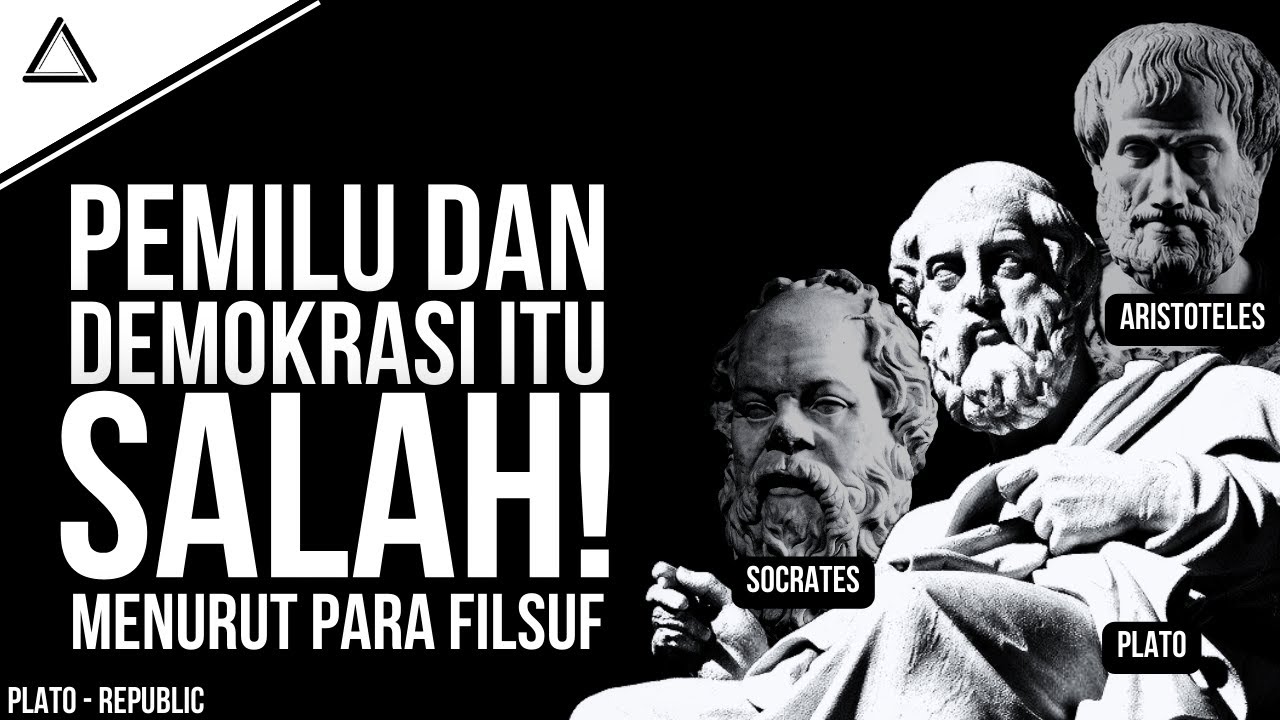PHILOSOPHY - Plato
Summary
TLDRThis script takes us back to ancient Athens, where philosopher Plato sought to guide people toward 'eudaimonia' or fulfillment. He emphasized self-knowledge through Socratic discussions, the transformative power of love, the educational role of beauty, and societal reform for better human development. Plato's vision included idealistic changes to society and government, advocating for philosopher-kings to lead a more rational and virtuous world.
Takeaways
- 🏛️ Athens in 2400 years ago was a compact city with advanced amenities like baths, theatres, temples, and gymnasiums, and warm weather for more than half the year.
- 📚 Plato, a prominent philosopher from Athens, dedicated his life to helping people achieve 'εὐδαιμονία' (Eudaimonia), a state of fulfilment.
- 🤔 Plato emphasized the importance of self-reflection and logical thinking over following 'doxa', or popular opinions, which he found to be flawed.
- 🤝 Plato's dialogues, including 'The Republic', 'The Symposium', and 'The Apology', often feature Socrates and are designed to provoke thought and self-examination.
- 💡 Plato's first big idea for a fulfilled life is 'Know yourself', advocating for a Socratic discussion to clarify one's own ideas and strengthen self-knowledge.
- 💑 Plato's second big idea is that true love involves admiration and the desire to emulate the good qualities of one's partner, leading to personal growth.
- 🎨 Plato believed that beauty has an educational function, with beautiful objects reflecting important truths about the good life and helping to educate our souls.
- 👁️ Plato's third big idea encourages decoding the message of beauty, suggesting that our attraction to beauty is a reflection of the qualities we need in our lives.
- 🏙️ Plato's fourth big idea is the reform of society, with a focus on creating a utopia where the society is structured to produce fulfilled individuals rather than military power.
- 👑 In 'The Republic', Plato suggests that society should admire and honor wise and good people, called Guardians, who serve as models for public service and personal development.
- 🏫 Plato founded The Academy in Athens to educate not only in traditional subjects but also in philosophy and ethics, aiming to produce good and kind individuals, including politicians.
Q & A
What was the approximate population of Athens 2400 years ago?
-The population of Athens 2400 years ago was about a quarter of a million people.
What does the Greek term 'εὐδαιμονία' (Eudaimonia) mean in the context of Plato's philosophy?
-In Plato's philosophy, 'εὐδαιμονία' (Eudaimonia) refers to a state of fulfilment or happiness that he believed people should strive to achieve.
How was Plato's approach to philosophy different from Socrates', and what was their relationship?
-Plato was a student of Socrates. While Socrates taught through dialogue but did not write any books, Plato wrote 36 dialogues, often featuring Socrates as the main character, to explore and preserve Socrates' teachings.
What are the four big ideas Plato proposed for making life more fulfilled according to the script?
-Plato's four big ideas for a more fulfilled life are: 1) Think more and 'Know yourself' through philosophy, 2) Let your lover change you by admiring and adopting their good qualities, 3) Decode the message of beauty to educate our souls, and 4) Reform society to better produce fulfilled people.
What does Plato suggest as a method to challenge and refine our ideas?
-Plato suggests a Socratic discussion, a method of self-examination or dialogue with another person, to challenge and refine our ideas rather than acting on impulse.
How does Plato view the role of love in personal growth?
-Plato views love as a transformative force where one should admire and be with someone who possesses qualities they lack, thus helping both individuals grow to their full potential.
What is Plato's perspective on the function of beautiful objects in our lives?
-Plato believes that beautiful objects whisper important truths about the good life, educating our souls by reflecting qualities we need but are missing in our lives.
What does Plato propose regarding the role of art and artists in society?
-Plato sees art as therapeutic and believes it is the duty of artists to help people live good lives by creating works that reflect positive and needed qualities.
What changes does Plato suggest in Athenian society to produce more fulfilled people?
-Plato suggests replacing the focus on rich and famous individuals with wise and good people called Guardians, who would be admired for their public service, modesty, and experience. He also proposes ending democracy until people learn to think rationally.
What was the ultimate goal of the school Plato started, The Academy?
-The ultimate goal of The Academy was to educate pupils not just in academic subjects but also in how to be good and kind, with the hope that politicians would become philosophers.
How does Plato's vision for society relate to his idea of a philosopher-king?
-Plato envisioned a society where rulers, or kings, were philosophers or had become philosophers, as he believed this would lead to a more just and fulfilled world.
Outlines

Cette section est réservée aux utilisateurs payants. Améliorez votre compte pour accéder à cette section.
Améliorer maintenantMindmap

Cette section est réservée aux utilisateurs payants. Améliorez votre compte pour accéder à cette section.
Améliorer maintenantKeywords

Cette section est réservée aux utilisateurs payants. Améliorez votre compte pour accéder à cette section.
Améliorer maintenantHighlights

Cette section est réservée aux utilisateurs payants. Améliorez votre compte pour accéder à cette section.
Améliorer maintenantTranscripts

Cette section est réservée aux utilisateurs payants. Améliorez votre compte pour accéder à cette section.
Améliorer maintenantVoir Plus de Vidéos Connexes

The Nicomachean Ethics Summary (Animated) — Ancient Wisdom From Aristotle to Achieve Eudaimonia 🏛️

Alla RICERCA di ATLANTIDE! - curiosità e misteri

Student Philosopher: Plato's Ladder of Love

Socrates: Biography of a Great Thinker

Sejarah Dan Kritik Demokrasi Dan Pemilu Menurut Socrates, Plato Dan Aristoteles

Ancient Greece | Educational Videos for Kids
5.0 / 5 (0 votes)
